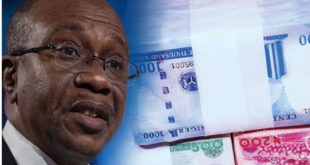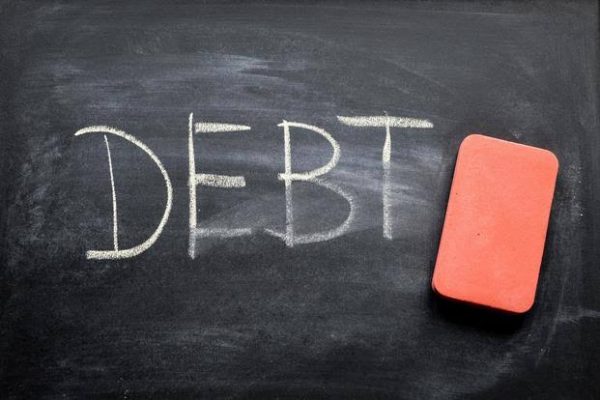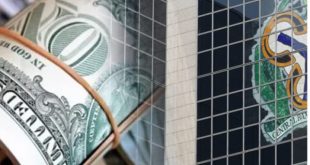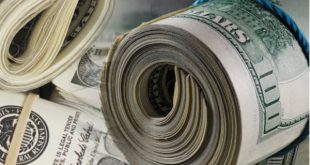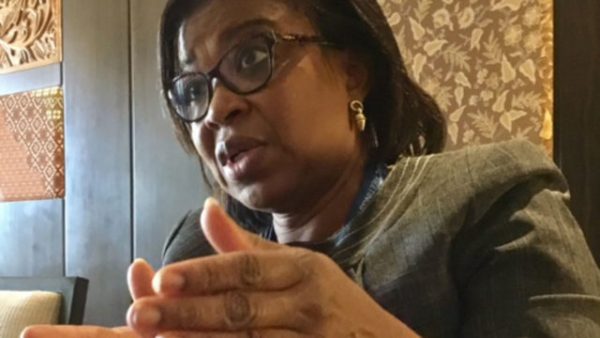
An Abuja-based policy think tank, Agora Policy, has said Nigeria’s debt is unsustainable and puts the country in a perilous situation due to the high cost of debt servicing.
In a report on Monday titled, ‘Options for Revamping Nigeria’s Economy’, the group noted that debt service has become one of the biggest elements of the country’s expenditure.

The report read in part, “Alarmingly, debt service was the largest component of expenditure with N1.94tn, followed by non-debt recurrent expenditure (N1.7tn), capital expenditure (N773.63bn) and statutory transfers (N289.89bn). Thus, the country is in the precarious situation of borrowing to pay back debt.
“Since revenue was N1.63tn and debt service was N1.94tn, the government borrowed N308bn to pay back debt. This is clearly a perilous situation.”

It noted that the low revenue generation of the Federal Government has led to high debt stock and high debt service payments.

According to the report, the total debt stock of Nigeria increased by 436 per cent from N6.17tn in December 2011 to N33.11tn in December 2021.
Within the same period, domestic debt increased by 242 per cent from N5.6tn to N19.2tn; while foreign debt increased by 2,435 per cent from N546bn to N13.86tn.
It also noted that the official debt stock statistics do not include FGN’s borrowing from the Central Bank of Nigeria through Ways and Means which increased by over 7,000 per cent from N265.7bn in January 2014 to N18.89tn in March 2022.
It stated, “Thus, if the debt from Ways and Means as of December 2021 (N17.4tn) is added to official debt, the domestic debt stock as of December 2021 rises to N36.6tn.”
Adora added, “It is clear that both FG’s expenditure and debt have increased over time. This, coupled with the fact that debt service exceeded revenue in the first four months of 2022 would indicate that debt is unsustainable.
“This scenario would ordinarily not present such a big problem if revenue had increased over the same period. However, FG’s revenue, rather than increase, has actually fallen. This presents the most critical fiscal problem facing the FG.”
The group advised the government to deepen and diversify sources of revenue, re-calibrate expenditure to spend smartly, and invest efficiently.
Commenting on the report, the Founder/Executive Director of Agora Policy, Waziri Adio, said the decision to focus on the economy was driven by the need to expand policy and programmatic options for the current and next administrations.
He said, “Everything revolves around the economy and there is no better time than the electioneering period to do a health check on the economy and come up with ideas and prescriptions for better economic outcomes.
“We commissioned this report to elevate the discussions during this important campaign season and to facilitate the search for solutions in an area that is central to national growth and human development.”
Some experts have however reacted to the report.
A former President of the National Accountants of Nigeria, Dr Sam Nzekwe, agreed that Nigeria’s debt was unsustainable.
He said, “The debt is huge. If you look at the budget, you will see that a huge sum of money is used to service debts. This is just the debt service charge. We are yet to talk about the principal.”
He also said that instead of focusing on the debt to GDP ratio, the focus should be on debt service to revenue ratio. He further noted that the country has a revenue problem.
A financial analyst, Ade Oladayo, added, “Already we’re paying about N970bn to service our foreign debts, N2.2trn to service domestic debt and N1.2trn on CBN Ways and Means extension.
“The US Fed will raise rates to more than 4 per cent by the end of Q4 and CBN looks like it’ll raise MPR beyond 16 per cent at that period. So, you can extrapolate that and see our bond yields and local debt interest payments rising. I completely agree with Agora’s report.
“The potential consequences of the rising debt burden looking at the deficit projected in the 2022 budget will be disastrous. Nigeria can’t afford it and it’ll cascade into an economic crisis.”
 MMS PLUS NG – Maritime, Aviation, Business, Oil and Gas News Online Newspaper with coverage in Maritime, Oil and Gas, Aviation, Power and Energy as well as Financial News
MMS PLUS NG – Maritime, Aviation, Business, Oil and Gas News Online Newspaper with coverage in Maritime, Oil and Gas, Aviation, Power and Energy as well as Financial News




